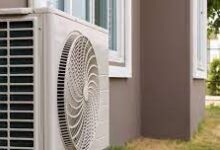Best Practices for Choosing the Right HVAC System for Your Long Beach Home

Introduction
Choosing the right HVAC system for your Long Beach home is crucial for ensuring comfort, efficiency, and cost-effectiveness. With various options available, making an informed decision can be challenging. This article will guide you through the best practices for selecting the ideal HVAC system tailored to your needs and the unique climate of Long Beach.
1. Assess Your Home’s Heating and Cooling Needs
Before choosing HVAC Long Beach system, it’s essential to evaluate your home’s specific heating and cooling requirements. Consider factors such as:
- Size of Your Home: Larger homes require more powerful systems to maintain consistent temperatures.
- Number of Rooms: The number of rooms and their usage can influence your choice of system.
- Insulation Quality: Well-insulated homes may need smaller systems than poorly insulated ones.
- Local Climate: Long Beach’s mild climate may impact the type and size of the system you need.
2. Understand Different Types of HVAC Systems
Familiarize yourself with the various types of HVAC systems available to determine which best suits your needs:
- Central Air Conditioning Systems: These systems provide even cooling throughout your home via ductwork. They are ideal for larger homes.
- Ductless Mini-Split Systems: These offer zoned cooling without ductwork, making them perfect for homes with no existing ducts or for room-specific cooling.
- Heat Pumps: Heat pumps provide both heating and cooling by transferring heat. They are energy-efficient and suitable for mild climates like Long Beach.
- Window Units and Portable Air Conditioners: These are cost-effective solutions for single rooms or small spaces.
3. Consider Energy Efficiency
Energy efficiency is a critical factor when choosing an HVAC system. Higher efficiency systems can lead to significant savings on energy bills. Look for:
- SEER Ratings: The Seasonal Energy Efficiency Ratio (SEER) measures cooling efficiency. Higher SEER ratings indicate more efficient systems.
- ENERGY STAR Certification: Systems with this certification meet strict energy efficiency guidelines set by the U.S. Environmental Protection Agency.
- Variable Speed Compressors: These adjust the cooling output to match the demand, improving efficiency and comfort.
4. Evaluate the Total Cost of Ownership
When selecting an HVAC system, consider not just the initial purchase price but also the total cost of ownership, including installation, maintenance, and operating costs. Factors to consider include:
- Installation Costs: Professional installation ensures optimal performance and efficiency.
- Maintenance Requirements: Regular maintenance is crucial for efficient operation and longevity. Choose systems with lower maintenance needs if possible.
- Energy Consumption: More efficient systems may have higher upfront costs but lower operating expenses.
5. Size Your System Correctly
Proper sizing of your HVAC system is essential for efficient operation and comfort. An oversized system can lead to short cycling, while an undersized system may struggle to maintain the desired temperature. A professional HVAC technician can perform a load calculation to determine the correct size based on:
- Square Footage: The total area of your home.
- Insulation Levels: The quality and quantity of insulation in your home.
- Window Types and Locations: The number, size, and orientation of windows.
- Occupancy and Usage Patterns: The number of occupants and how different areas are used.
6. Consider Advanced Features
Modern HVAC systems come with various advanced features that can enhance comfort, convenience, and efficiency:
- Smart Thermostats: These allow you to control your system remotely, set schedules, and optimize energy usage.
- Zoning Systems: These enable you to control temperatures in different areas independently, improving comfort and efficiency.
- Air Quality Improvements: Look for systems with built-in air purifiers, humidifiers, or dehumidifiers to enhance indoor air quality.
7. Choose a Reputable HVAC Contractor
Selecting a reliable HVAC contractor is crucial for ensuring proper installation and maintenance. Look for:
- Experience and Certifications: Choose contractors with relevant experience and certifications, such as NATE (North American Technician Excellence).
- Positive Reviews and References: Check online reviews and ask for references from previous customers.
- Comprehensive Services: Select a contractor who offers installation, maintenance, and repair services.
Conclusion
Choosing the right HVAC system for your Long Beach home involves careful consideration of your specific needs, energy efficiency, total cost of ownership, proper sizing, advanced features, and selecting a reputable contractor. By following these best practices, you can ensure a comfortable and efficient home environment year-round. For expert advice and professional installation, trust the experienced HVAC professionals in Long Beach.




